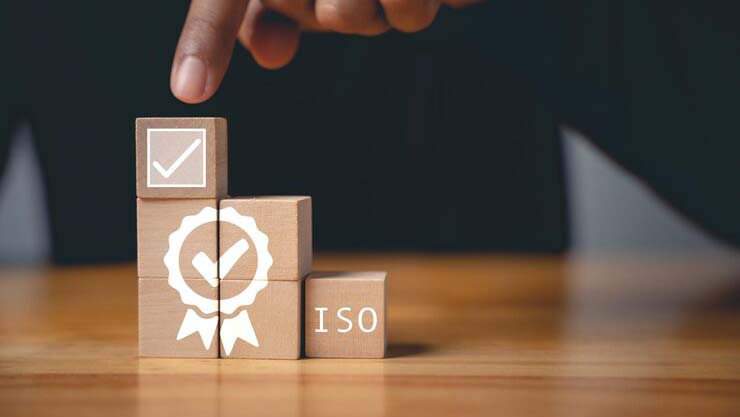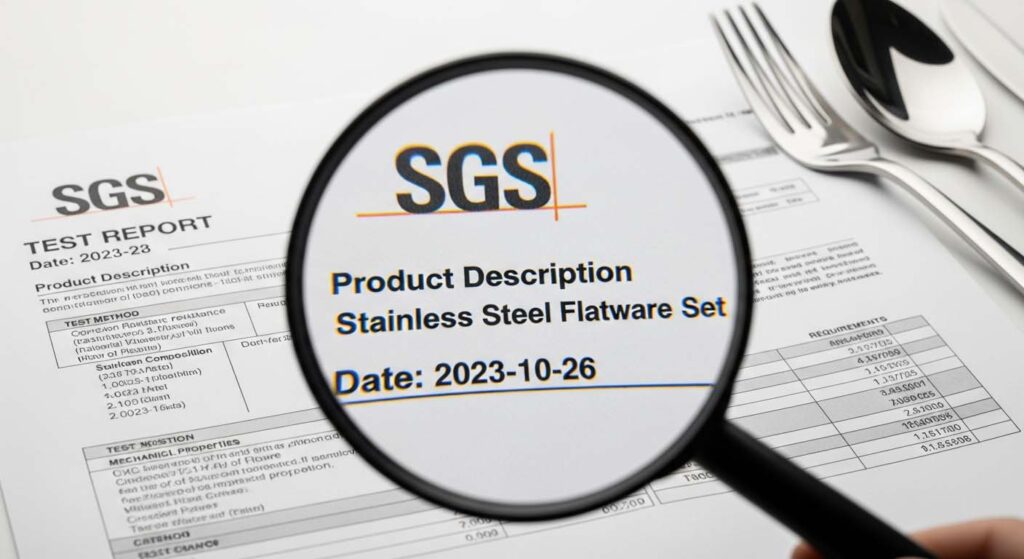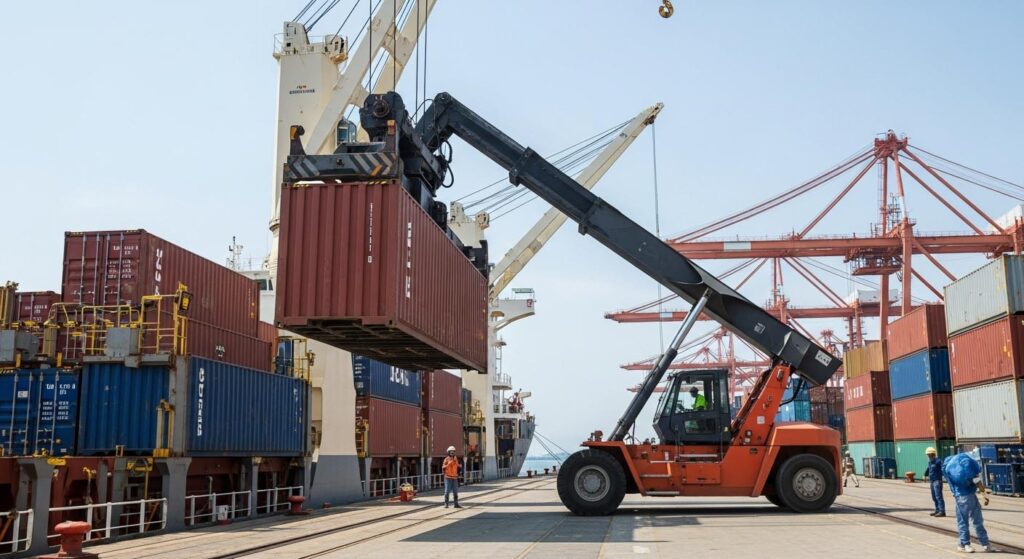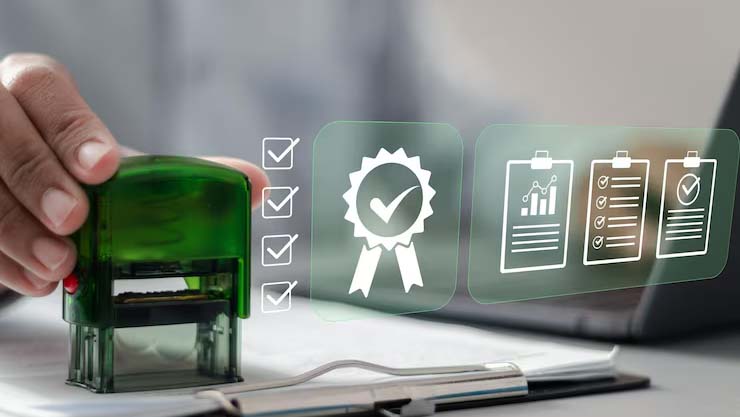Why is quality certification crucial when buying silverware in bulk?
Sourcing bulk silverware is a high-stakes decision. Uncertified products can fail safety tests or get stuck at customs, turning a six-figure investment into your company's biggest liability.
Quality certification is your non-negotiable insurance policy. It proves the product is safe (FDA, LFGB), the quality is consistent (ISO 9001), and it will clear international customs without issue. This safeguards your customers, your investment, and your brand's reputation.

I was talking with Jacky, the head of procurement for a major American brand, about the risks he faces. He told me, "Linc, before I even look at your prices or designs, I need to see your factory's certifications. My compliance department won't even open an email from a supplier without an LFGB or ISO 9001 certificate attached." His company knows that a single failed inspection or a delayed shipment could cost them millions, not just in lost sales, but in damage to a brand they've spent decades building. He isn't buying silverware; he's buying confidence. And that confidence comes from verifiable, third-party proof of quality.
Does Certification Actually Guarantee Food Safety and Compliance?
You trust your supplier's promise that their silverware is safe. But a single customer complaint or a failed health inspection could trigger a massive product recall and devastating legal action.
Yes, certification is your primary guarantee of safety. Documents like FDA and LFGB reports are independent proof that the silverware is free from harmful levels of lead, cadmium, and other toxins, protecting both your customers and your business from liability.

This is the most critical function of certification. It moves safety from a promise to a fact. When we talk about food-contact safety, we're talking about preventing harmful materials from leaching from the metal into the food. A factory can say its steel is "food grade," but a certificate proves it. Certifications are not just papers to hang on the wall; they are the result of rigorous laboratory testing. For example, the European LFGB standard is famously strict and tests for things that other standards might not. It ensures the product doesn't transfer any of its components to food in dangerous quantities. This is how you protect end-users from health risks and your business from the nightmare scenario of a product recall.
| Certification | Key Focus | Why It's Crucial |
|---|---|---|
| FDA (U.S.) | Tests for harmful substances like lead and cadmium. | Essential for legal import and sale in the United States. |
| LFGB (Germany/EU) | Strict testing for sensory impact (taste/smell) and material transfer. | Considered the gold standard for food safety in the EU market. |
| REACH (EU) | Regulates hazardous chemicals in all imported products. | Ensures compliance with EU chemical safety legislation. |
How Does Certification Ensure Consistent Quality Across Thousands of Pieces?
The sample you approved was perfect, but will the 5,000th piece be just as good? Inconsistent quality in a bulk order leads to high defect rates, angry customers, and wasted money.
A certification like ISO 9001 audits the factory's entire process, not just the final product. It ensures they have a reliable Quality Management System, guaranteeing consistency from the first unit to the last and minimizing defects like rust, bending, and imperfections.

While product certifications1 like LFGB test a sample for safety, management certifications like ISO 90012 look at the bigger picture. It verifies that the factory has documented, repeatable processes for everything they do. This is your best defense against inconsistency in bulk orders. An ISO 9001-certified factory has systems in place to control quality at every step:
Raw Material Inspection
They don't just trust their steel supplier. They have a process to verify that every batch of incoming stainless steel is the correct grade (e.g., 18/10) before it even enters the production line.
In-Process Quality Checks
Workers and managers perform checks at critical points, such as after stamping, during polishing, and before coating. This catches defects early, before they are replicated across thousands of pieces.
Final Inspection and Testing
There is a formal final QC process where a percentage of the finished batch is rigorously inspected based on set standards. This is the last line of defense before the products are packed and shipped to you.
Without this certified system, you're just gambling that the factory's workers will "do a good job" every single day. ISO 9001 replaces that gamble with a documented process.
Will Your Shipment Get Stuck at Customs Without the Right Papers?
Your container has landed, but it's being held by customs. Every day of delay costs you money in fees, and your retail partner is threatening to cancel their order.
Yes, this is a very high risk. Major markets strictly regulate food-contact products. Without the correct, valid certifications (like LFGB or FDA reports), your entire shipment can be seized, delayed indefinitely, or even destroyed at your expense.

Customs agencies in the US, EU, and other developed markets are the gatekeepers of consumer safety. They are not impressed by a low price on an invoice; they need to see proof of compliance. When your silverware shipment arrives, they have the right to request all relevant documentation. If you can't provide a valid test report from a recognized lab that corresponds to a certification like LFGB, you are in serious trouble. The best-case scenario is a long delay while samples are sent for independent testing, with you paying all the storage fees. The worst-case scenario is the customs authority deems your products non-compliant and refuses entry. This means you either pay to have the entire shipment sent back to the factory or pay for it to be destroyed. This is how a profitable order can turn into a catastrophic loss overnight. An experienced, certified supplier knows exactly what paperwork each country requires and provides it proactively.
Why Is Certification Your Best Insurance for Brand Reputation?
A single online review with a photo of a rusty fork can destroy customer trust. An uncertified product is a direct gamble with your brand's image and your financial investment.
Certification is tangible proof of quality that builds trust with everyone, from B2B partners to end-users. It protects your investment from recalls and reputational damage, allowing you to justify a premium price and position your brand as a reliable, high-quality choice.

In a crowded market, trust is your most valuable asset. Certification is one of the fastest ways to build it. For your B2B customers—the retailers, hotels, and restaurant chains—a certificate isn't just a bonus; it's a requirement. It shows them you are a serious, professional partner who manages risk. For your end customers, it’s a powerful marketing tool. Being able to state that your products are "FDA compliant" or "LFGB certified" immediately sets you apart from cheaper, unknown brands. It's a clear signal of quality and safety that justifies a higher price point. Think of certification as the insurance policy for your bulk order. The cost of getting a product certified is tiny compared to the value of the inventory, not to mention the immense cost of a product recall or a lawsuit. It protects your cash, but more importantly, it protects your good name.
Conclusion
Certification is not an optional extra; it's a fundamental pillar of sourcing. It is your ultimate safeguard, protecting your investment, your customers, and your brand's long-term success.
